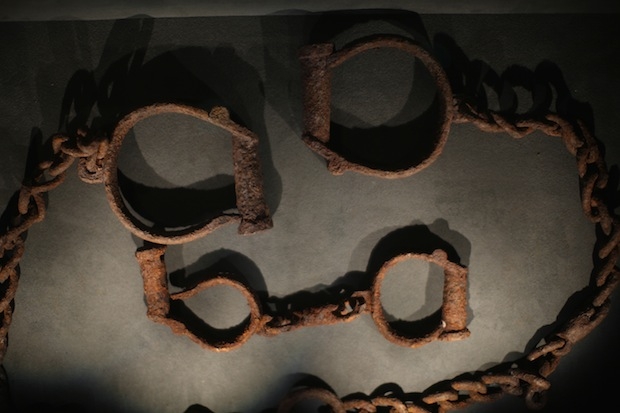Today is the United Nations day for he Remembrance of the Slave Trade and its Abolition – and the school packs have been readied to tell pupils about Britain’s part in this great evil. But the way we tend to remember (and, occasionally, apologise for) slavery has two main problems. Yes, British traders played a full and shameful part in the slave trade. But what marks Britain out is out objection to it. As Thomas Sowell has pointed out, slavery was a worldwide institution for thousands of years – yet nowhere in the world was slavery controversial until the 1780s when some Brits started kicking up a fuss about it.
White slaves were being sold in the Ottoman empire long after American slaves were freed. About a million Europeans were enslaved by North Africans between the 16th and 19th centuries. Even in my native Highlands, clansmen would be sold for colonial plantations. The brutal fact about slavery is that it was not just something that white imperialists did to Africans. People of every creed and colour were slaves, and were enslaved. When we commemorate slavery by focusing on its colonial aspect, we lose sight of a far wider historic evil. And its capacity to renew.
The bigger problem with celebrating the ‘abolition’ of the slave trade is that it has not been abolished. It’s happening here, now, in Britain. It’s going under the euphemism ‘human trafficking’. A brilliant investigation in the Sunday Times revealed how Vietnamese girls are used as slaves in nail bars frequented by middle-class Brits. It’s not just the sex industry. It’s domestic service, agriculture, growing drugs. Britain is a Petri dish for this slavery because of the sheer amount of international traffic: about 1,100 settle here every day and a third of London is foreign-born. Worse, we don’t have the laws to deal with it. Police tend to prosecute slaves, rather than their masters, because it’s easier.
At long last, things are changing. In my Daily Telegraph column today, I write about Theresa May’s Modern Slavery Bill that will at last call this evil by its name, grand immunity to victims, establish a modern slavery commissioner and give police the powers and instructions that it needs. For those who want to know more about the extent of modern slavery in Britain, I can do no better that point to the brilliant report compiled by the Centre for Social Justice. (Full disclosure: I’m on the CSJ’s advisory board, and spoke at the launch of their report).
Some might argue that ‘slavery’ is too strong a word to use for, say, trafficked and indebted Lithuanians. Here I defer to the Americans, who have far more recent experience of it. And to Barack Obama, who spoken powerfully about the need to call modern slavery by its name. It’s really worth listening to:
Obama has diagnoses the problem. But Britain is now moving to remedy it, more quickly and powerfully than any other major nation. Slavery has continued in our shores because too many people think it is something that died two centuries ago. It’s great that people like Theresa May (and Labour’s Frank Field, a great force behind the fight against modern slavery) are willing to call this evil by its name. If the Bill is passed, as I hope it will be soon, it will be a great moment for Britain. Ever rich country is affected by modern slavery, but only Britain is conducting a root-and-branch review of the legislation so we have tools needed to extinguish this new evil – as surely as we did the last one.







Comments